 Mike Self
.
August 30, 2022
.
Department
Mike Self
.
August 30, 2022
.
Department
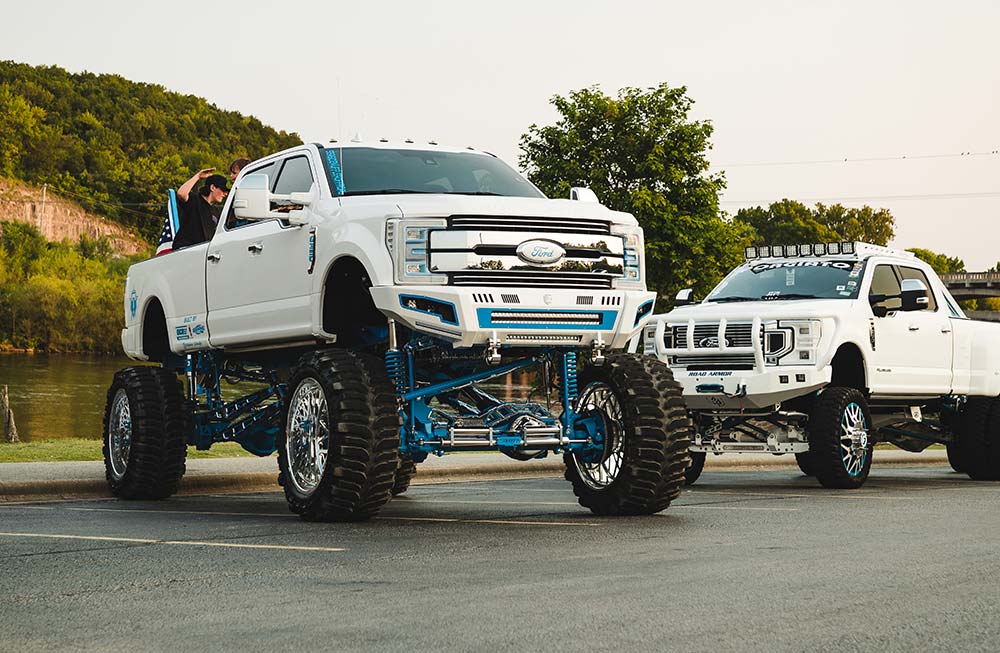
Lifted trucks may look like big, scary beasts. But in reality, they’re very timid and, if cared for properly, will give you years of enjoyment and plenty of love in return. With regular feedings of gas or diesel, they will grow to an impressive size in no time at all! They love playing in the mud as much as they do getting a bath, making them perfect for city dwellers and country folk alike.
Is a lifted truck right for your family? You’ll be happy to hear that the answer is probably “yes”! You probably have questions, and we have some answers. These are the top 10 questions we’ve received about these trucks, and our take on them.
Just like any vehicle, a lifted truck is only as safe as the quality of its parts. If you’re thinking about buying “eBay” lift parts (a.k.a., cheap parts with zero quality control from a random overseas supplier), expect some problems. A good, well-engineered kit from a well-known company is what you want, because they’ve spent the time and money to ensure that their parts operate as intended and can actually survive going off-road.
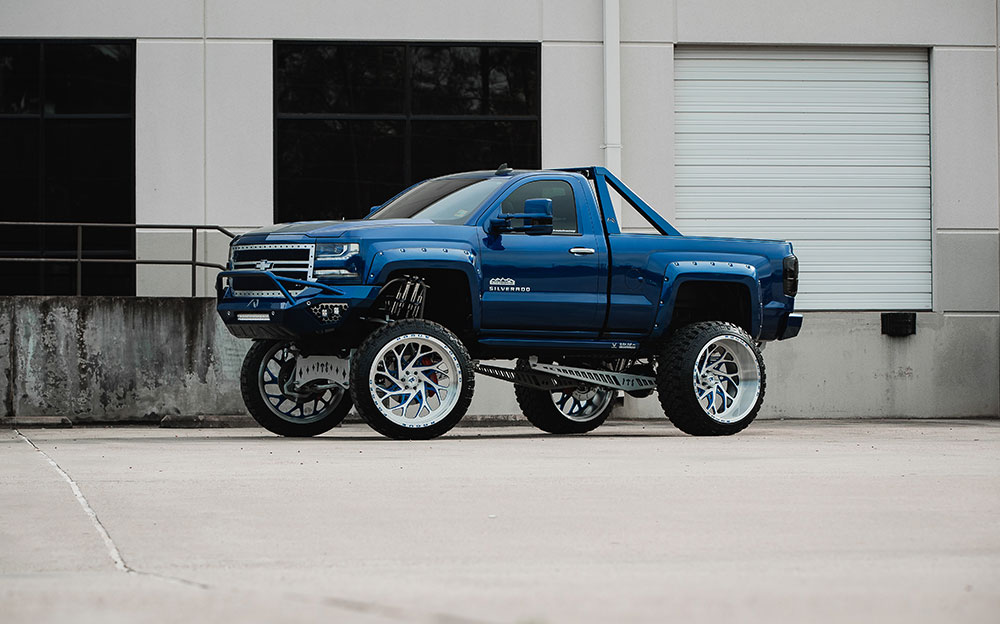 And yes, these trucks can be more susceptible to rollovers because of their higher center of gravity, but wide negative-offset wheels tend to negate that issue for the most part unless you’re going sky high. But the biggest concern could very well be the brakes, since oversized tires can severely impact stopping power. An upgraded brake setup will help fill up those big wheels and bring you to a stop in a hurry, which is especially important to prevent rear-ending that car with the rear bumper that’s 4 feet below your front bumper!
And yes, these trucks can be more susceptible to rollovers because of their higher center of gravity, but wide negative-offset wheels tend to negate that issue for the most part unless you’re going sky high. But the biggest concern could very well be the brakes, since oversized tires can severely impact stopping power. An upgraded brake setup will help fill up those big wheels and bring you to a stop in a hurry, which is especially important to prevent rear-ending that car with the rear bumper that’s 4 feet below your front bumper!
Like, legal legal? The answer is yes, no, and everything in between. Depending on the city and state, the laws can differ greatly. Some states like Texas are very lenient; others are much more strict (yeah, you already know we’re talking about California). Living in California, this author can tell you that lifted trucks are still everywhere in sight, and the law enforcement in the town where I live tends to follow the spirit of the law more than the letter of the law.
 Some laws regarding lifted trucks target the actual height of the truck (often bumper height), while other laws target the equipment. For example, front lift blocks are illegal in some states, but some states have no laws at all when it comes to modifying your suspension. When in doubt, check your local laws to find out.
Some laws regarding lifted trucks target the actual height of the truck (often bumper height), while other laws target the equipment. For example, front lift blocks are illegal in some states, but some states have no laws at all when it comes to modifying your suspension. When in doubt, check your local laws to find out.
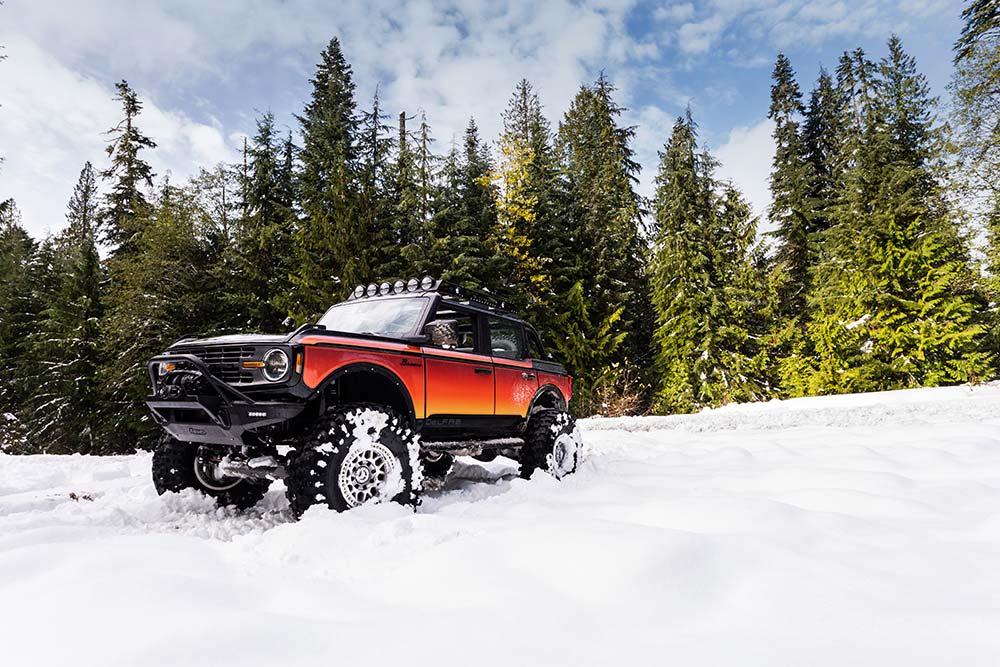 Quite the contrary! One of the main benefits of a lifted truck is greatly improved undercarriage clearance, which is a huge plus in snow. Not only does the lift itself provide more clearance, but adding taller tires also adds more room between snow and your chassis.
Quite the contrary! One of the main benefits of a lifted truck is greatly improved undercarriage clearance, which is a huge plus in snow. Not only does the lift itself provide more clearance, but adding taller tires also adds more room between snow and your chassis.
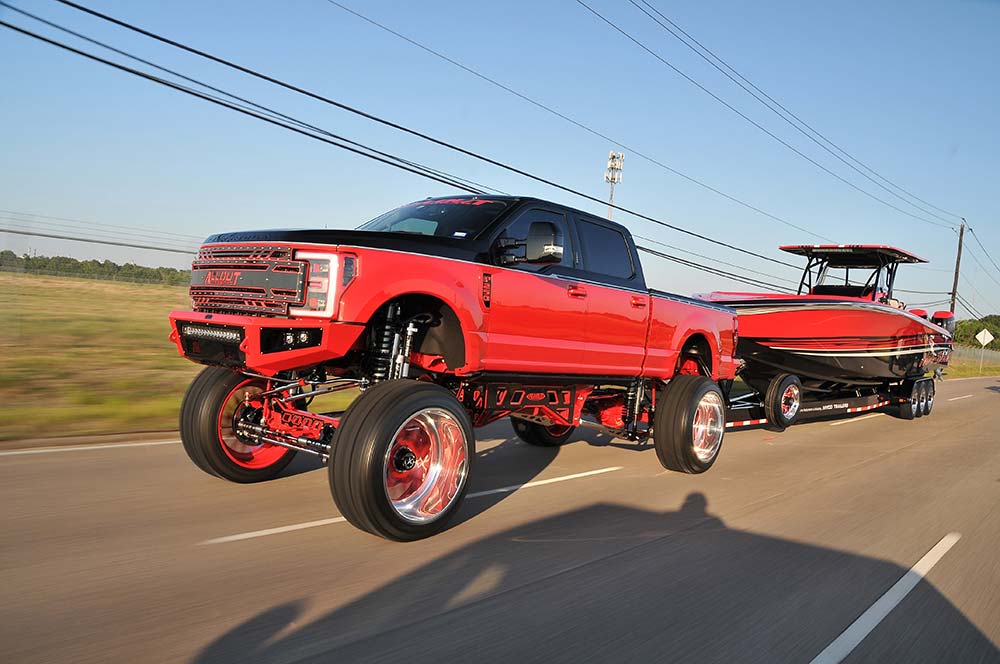 In general, lifted trucks don’t sacrifice much towing capacity and can tow just about as well as a stock truck when properly equipped. The major issue tends to be hitch-to-trailer angle, as a lifted truck with a standard hitch just won’t line up with most trailers. The solution is a drop hitch that is rated to handle whatever it is you’re towing and keep your trailer level. You’re going to spend a bit more for a quality drop hitch, but the peace of mind is definitely worth it!
In general, lifted trucks don’t sacrifice much towing capacity and can tow just about as well as a stock truck when properly equipped. The major issue tends to be hitch-to-trailer angle, as a lifted truck with a standard hitch just won’t line up with most trailers. The solution is a drop hitch that is rated to handle whatever it is you’re towing and keep your trailer level. You’re going to spend a bit more for a quality drop hitch, but the peace of mind is definitely worth it!

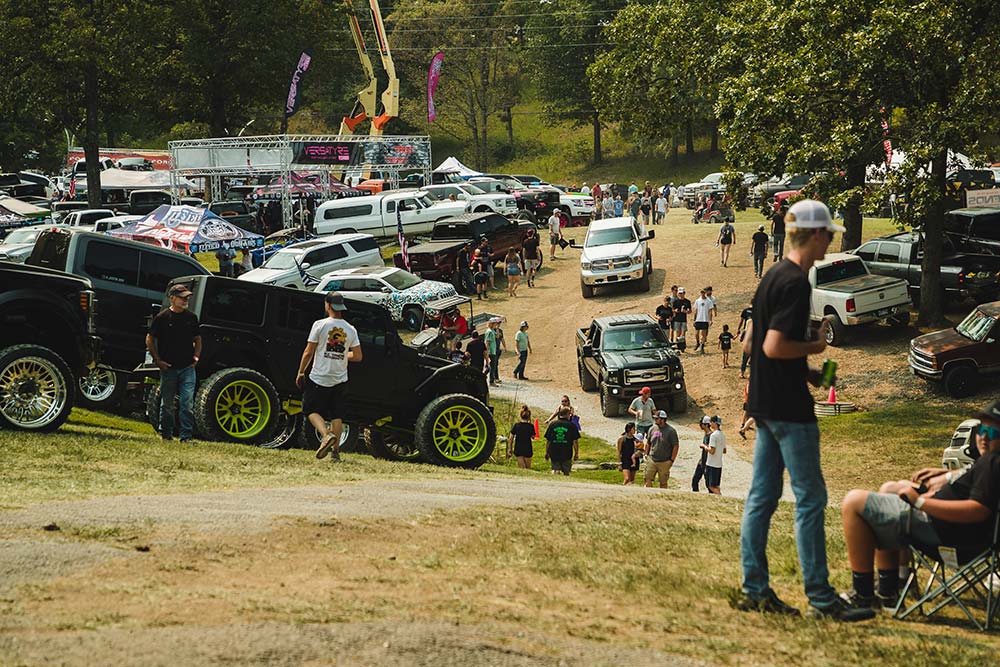 Bro, do you even bro, bro? It’s no secret that the stereotypical lifted truck owner, historically speaking, is a younger to middle-aged dude with an abundance of black socks and flat-billed hats, but that’s not (always) the case! Everyone from students to cops drives lifted trucks… Wait, they also sometimes have black socks and flat-billed hats, but that’s not the point. The point is that a large variety of people drive these trucks!
Bro, do you even bro, bro? It’s no secret that the stereotypical lifted truck owner, historically speaking, is a younger to middle-aged dude with an abundance of black socks and flat-billed hats, but that’s not (always) the case! Everyone from students to cops drives lifted trucks… Wait, they also sometimes have black socks and flat-billed hats, but that’s not the point. The point is that a large variety of people drive these trucks!
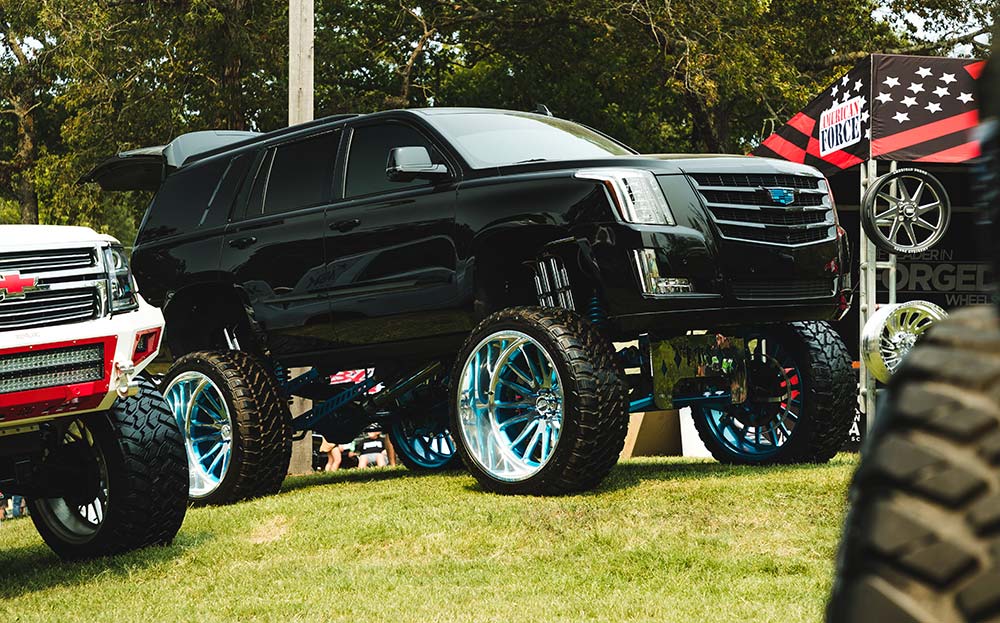
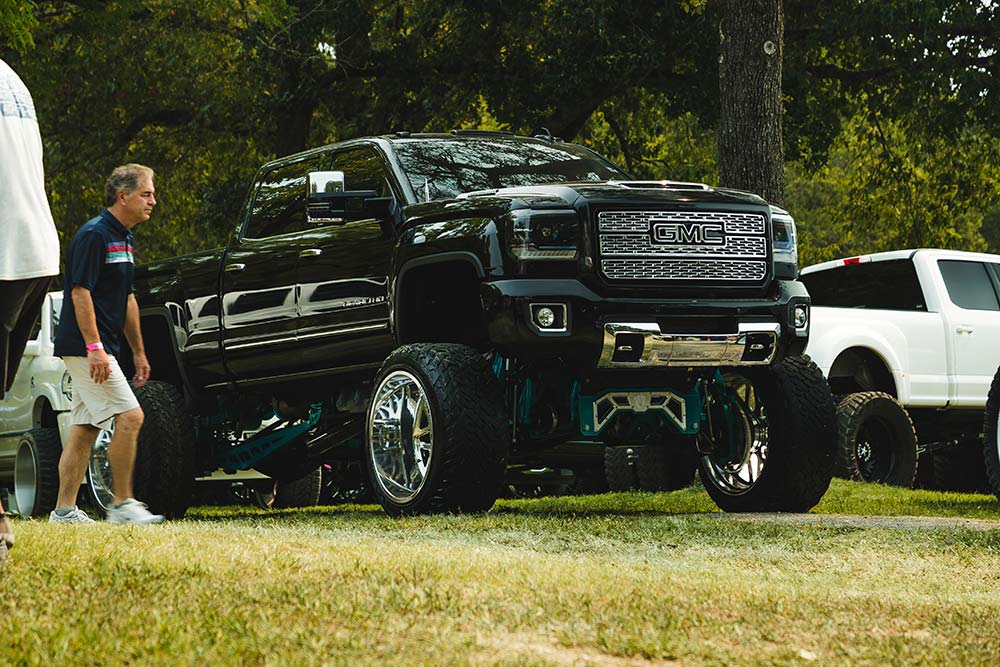 As The Dude would say, “Just take it easy, man…” Not everything needs a reason, but if you’ve gotta have some, here ya go:
As The Dude would say, “Just take it easy, man…” Not everything needs a reason, but if you’ve gotta have some, here ya go:
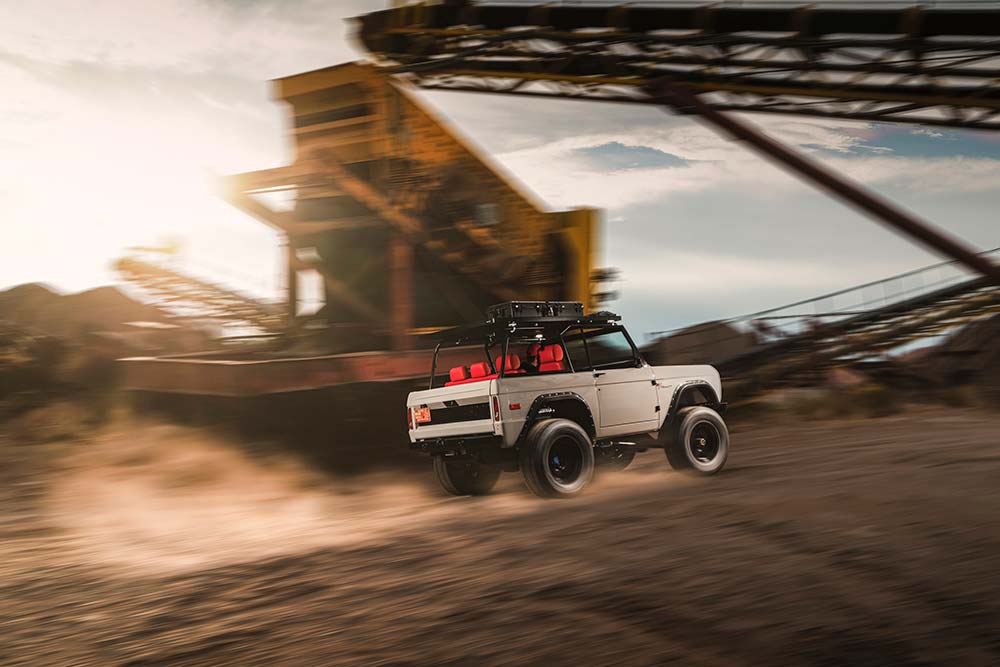 While it’s true that many lifted trucks from days long gone tended to ride rough, that’s not really the case anymore. Unless you’re rollin’ an early ’80s Toyota with five Rancho shocks at each corner, you can expect a decently comfortable ride from today’s lifted trucks assuming you’re using a quality kit. That being said, don’t expect giant wheels shod with low-profile tires to help if your truck already rides rough. A decent-sized sidewall can work wonders for ride quality, as can a set of good shocks.
While it’s true that many lifted trucks from days long gone tended to ride rough, that’s not really the case anymore. Unless you’re rollin’ an early ’80s Toyota with five Rancho shocks at each corner, you can expect a decently comfortable ride from today’s lifted trucks assuming you’re using a quality kit. That being said, don’t expect giant wheels shod with low-profile tires to help if your truck already rides rough. A decent-sized sidewall can work wonders for ride quality, as can a set of good shocks.
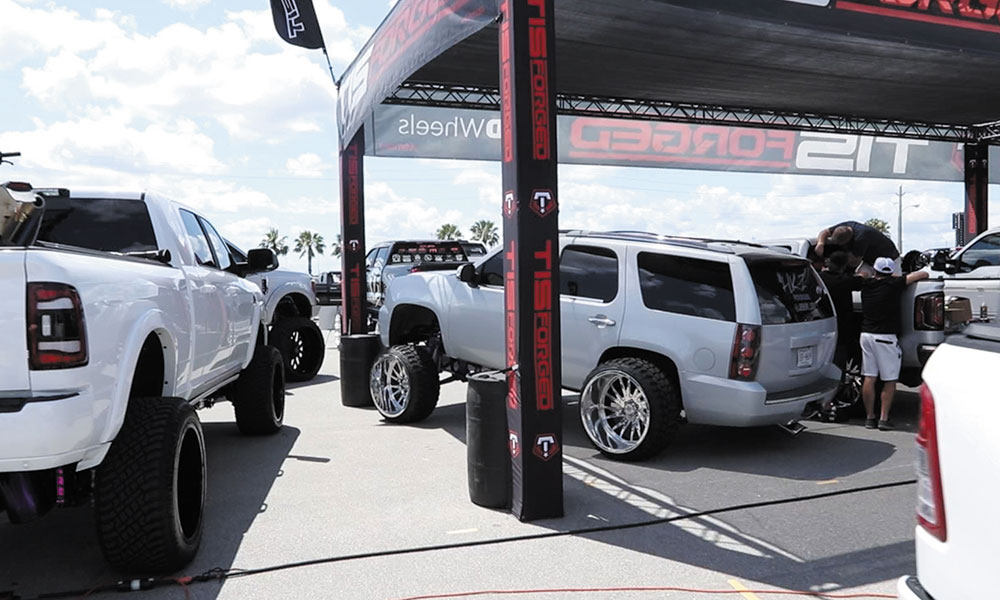 Can we get this out of the way? They shouldn’t be. Maybe the trend started with prerunners and got out of hand from there, but the Cali Lean (or Carolina Squat, depending on where you live) has jumped the shark and serves no practical purpose on any street-driven truck aside from making people stare and wonder why you didn’t finish lifting your truck. Oohhh, now we get it—it’s for the haterz! Just don’t do it and everything will be fine.
Can we get this out of the way? They shouldn’t be. Maybe the trend started with prerunners and got out of hand from there, but the Cali Lean (or Carolina Squat, depending on where you live) has jumped the shark and serves no practical purpose on any street-driven truck aside from making people stare and wonder why you didn’t finish lifting your truck. Oohhh, now we get it—it’s for the haterz! Just don’t do it and everything will be fine.
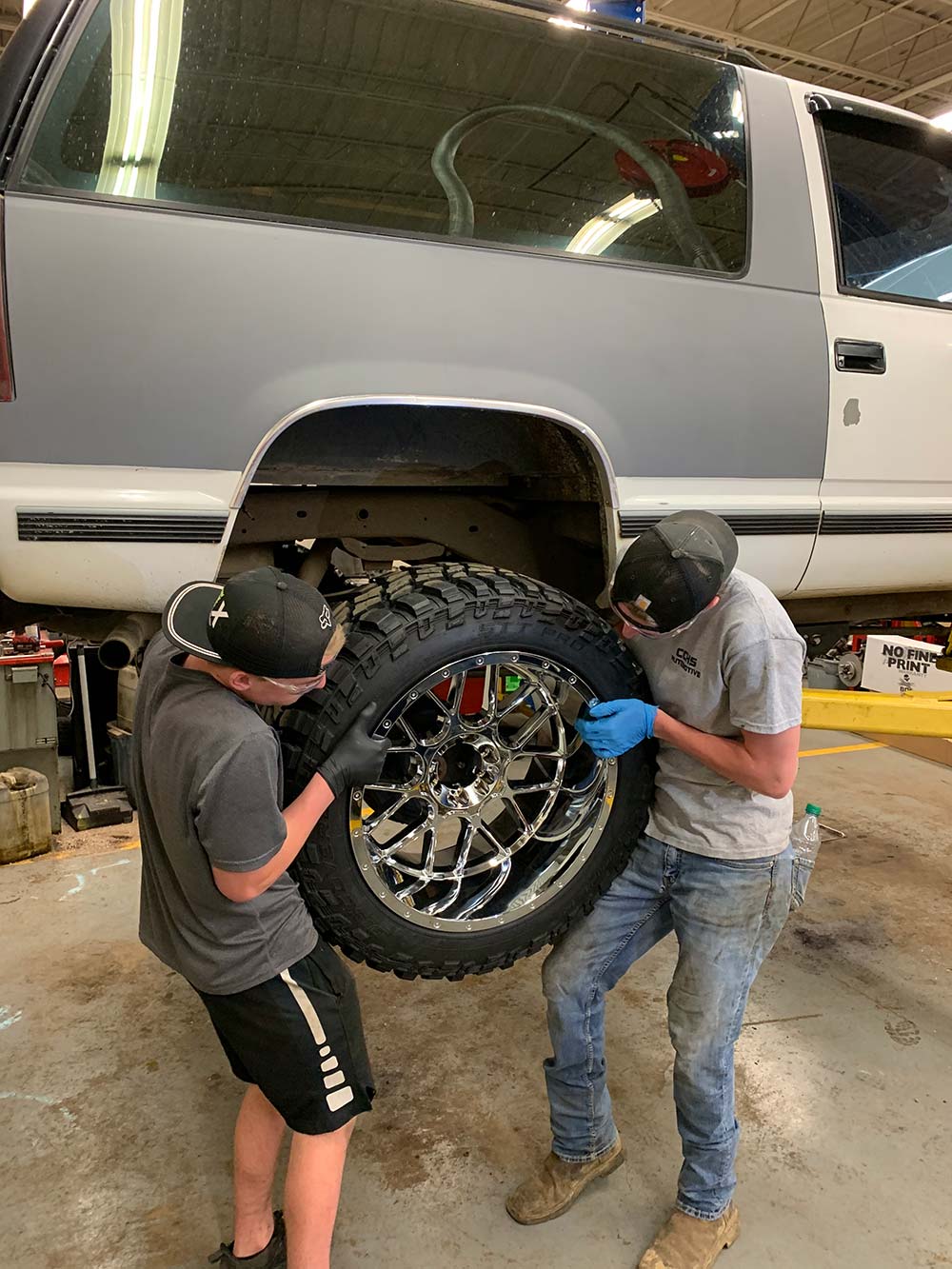 Lifted trucks aren’t typically going to have more issues than, say, a lowered truck, but it’s possible that a lifted truck might have problems due to installer error. You really should make sure that everything is tight and in good shape every few months. While most of us probably won’t do it, preventative maintenance is the best solution no matter what suspension is under your truck. Some lift kits reuse some of the factory suspension parts, so keep in mind that even though your lift kit might be new, your original stock parts aren’t and probably have quite a few miles on them already. Also, if you drive your truck like a savage, expect things to wear more quickly.
Lifted trucks aren’t typically going to have more issues than, say, a lowered truck, but it’s possible that a lifted truck might have problems due to installer error. You really should make sure that everything is tight and in good shape every few months. While most of us probably won’t do it, preventative maintenance is the best solution no matter what suspension is under your truck. Some lift kits reuse some of the factory suspension parts, so keep in mind that even though your lift kit might be new, your original stock parts aren’t and probably have quite a few miles on them already. Also, if you drive your truck like a savage, expect things to wear more quickly.
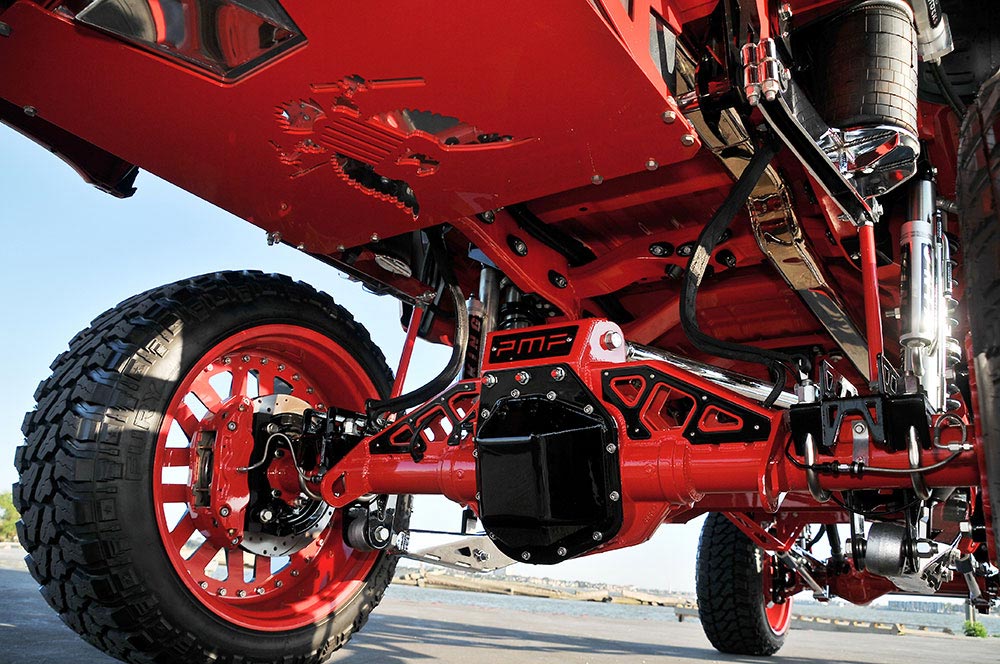
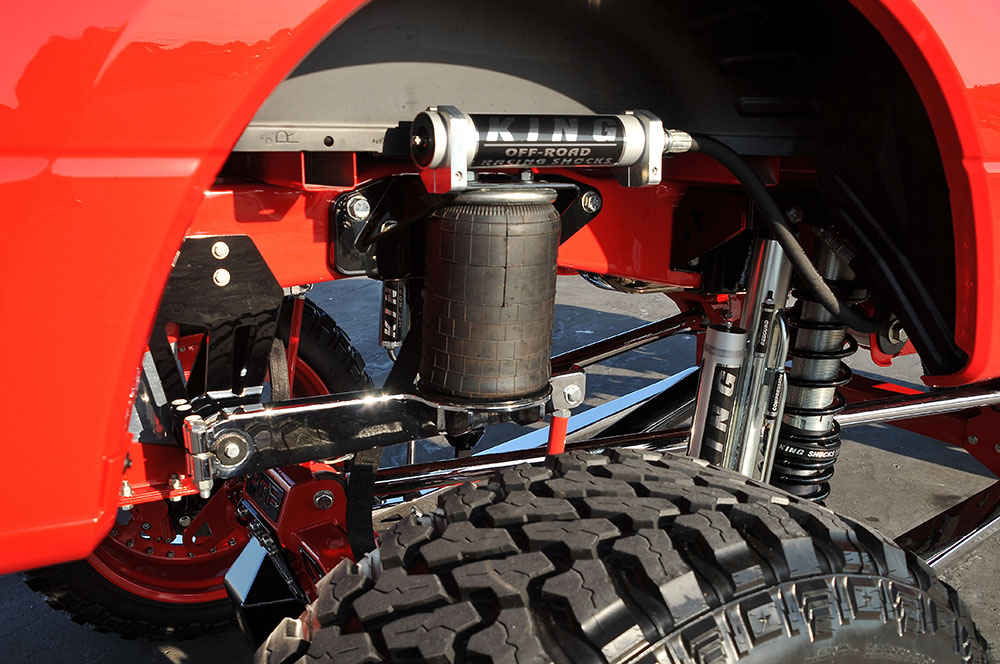 Whether you’re looking for more towing capacity or adding some adjustability to your ride height, airbags will definitely work on a lifted truck. Many helper bag kit manufacturers offer spacers for use with these trucks, but if you want to add airbags to be able to raise or drop your truck, you may have to have a custom suspension built unless you happen to own a truck that companies such as Kelderman make a kit for. In either case, airbags will add another level of enjoyment for your lifted truck!
Whether you’re looking for more towing capacity or adding some adjustability to your ride height, airbags will definitely work on a lifted truck. Many helper bag kit manufacturers offer spacers for use with these trucks, but if you want to add airbags to be able to raise or drop your truck, you may have to have a custom suspension built unless you happen to own a truck that companies such as Kelderman make a kit for. In either case, airbags will add another level of enjoyment for your lifted truck!
Read More: TOP 10 QUESTIONS ABOUT LOWERED TRUCKS
Share Link